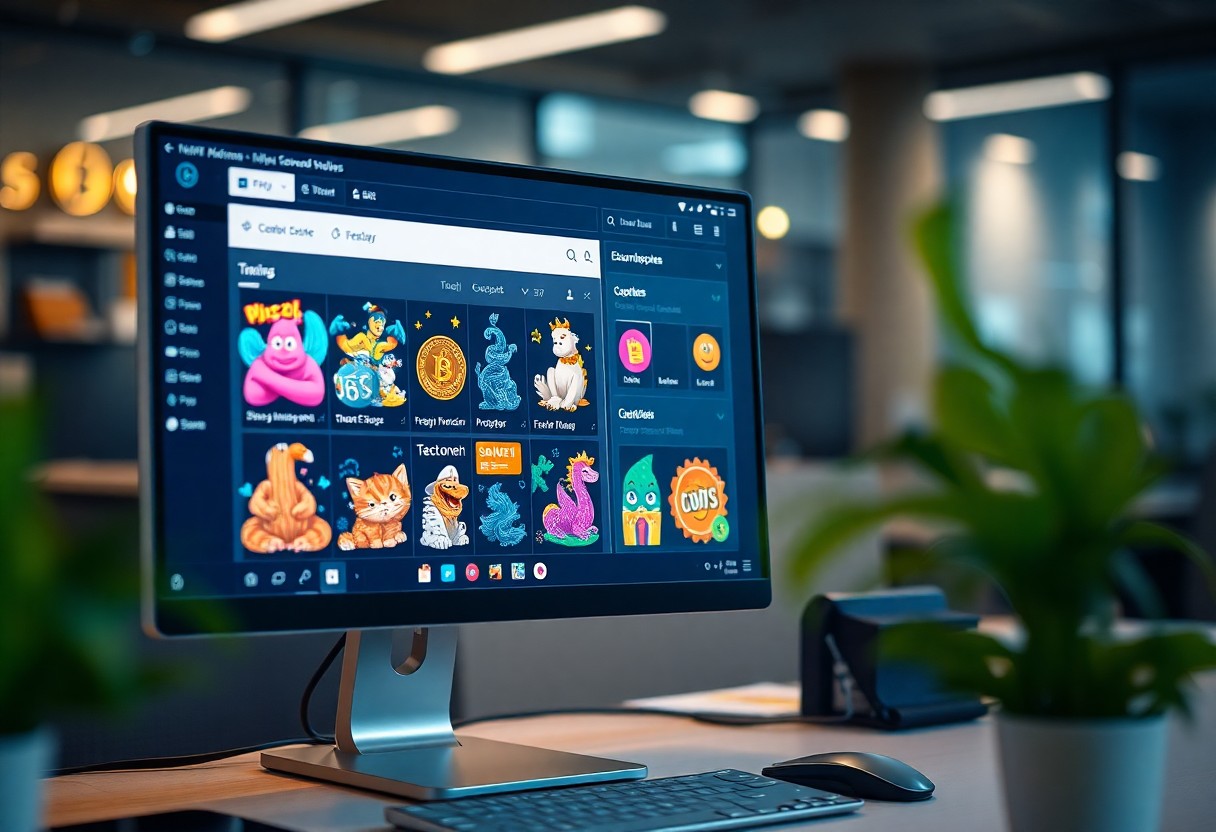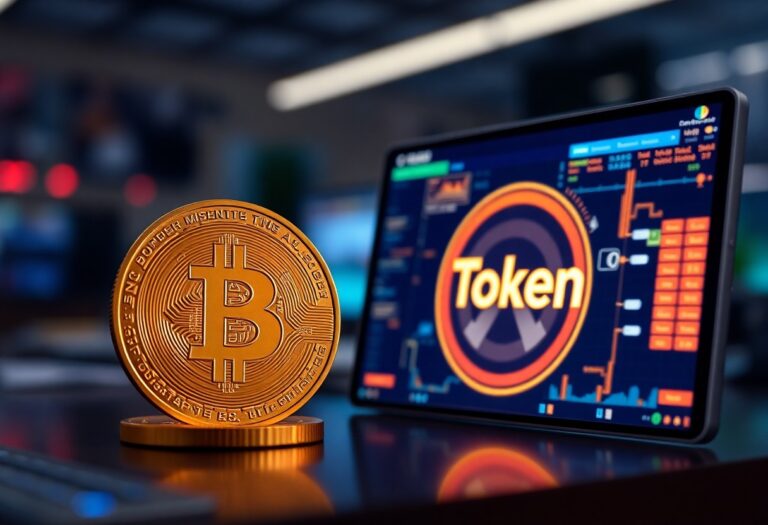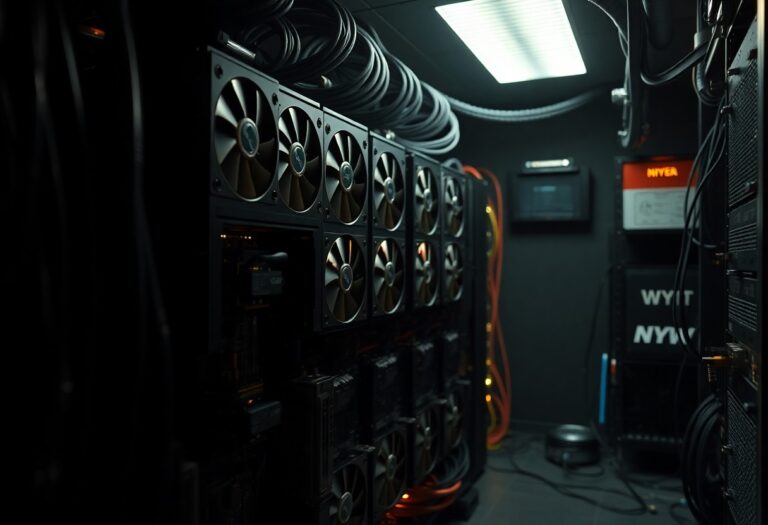What Are NFTs and How Do They Work?
It’s imperative to understand Non-Fungible Tokens (NFTs) as they rapidly transform the digital landscape. NFTs are unique digital assets that represent ownership of specific items, be it art, music, or virtual real estate, secured on a blockchain. Their distinct identity allows you to buy, sell, or trade them, unlike traditional cryptocurrencies. However, navigating this space requires caution, as the market can be highly volatile and susceptible to scams. Recognizing both the opportunities and risks associated with NFTs empowers you to make informed decisions in this exciting new frontier of digital ownership.
What Are NFTs?
While traditional assets like art and collectibles rely on physical ownership and provenance, NFTs or Non-Fungible Tokens introduce a digital revolution in how you can own and trade unique items. This technology allows you to verify ownership and authenticity on a blockchain, ensuring that each token is distinct and cannot be replaced or interchanged with another. As such, NFTs represent a new form of digital ownership that applies to a variety of content, from art and music to virtual real estate and gaming assets.
Definition of NFTs
The term NFT stands for Non-Fungible Token, a digital asset that represents ownership or proof of authenticity of a unique item or content, secured using blockchain technology. Unlike cryptocurrencies such as Bitcoin or Ethereum, which are fungible and can be exchanged on a one-to-one basis, NFTs are distinct and carry unique information that makes them irreplaceable. This differentiation is what allows you to attach a specific value and identity to digital items.
Types of NFTs
Around the world of NFTs, there are various types that cater to different interests and industries. They can include digital art, music, virtual real estate, collectibles, and even domain names. Each type serves different purposes and appeals to distinct audiences, creating a vibrant marketplace for traders and collectors. You can find digital artworks sold as NFTs, music tracks that allow direct artist support, and even virtual items in video games that you can buy, sell, or trade.
| Type of NFT | Description |
| Digital Art | Unique artwork stored on the blockchain. |
| Music | Tracks or albums enabling direct sales by artists. |
| Virtual Real Estate | Parcels of land in virtual worlds. |
| Collectibles | Digital items resembling physical collectible cards. |
| Domain Names | Blockchain-based ownership of web domains. |
Knowing about the various types of NFTs allows you to explore different avenues of ownership and investment in the digital space. Each category offers unique opportunities for engagement and profit, depending on your interests and expertise.
- Digital Art
- Music NFTs
- Virtual Real Estate
- Collectibles
- Domain Names
Definition of NFTs is vital for navigating this rapidly evolving landscape. By understanding the types available, you can leverage them to your advantage, whether for investment, enjoyment, or community participation.
How NFTs Work
One of the fundamental aspects of how NFTs work is their integration with blockchain technology. When you create or purchase an NFT, the transaction is recorded on a blockchain, which is a decentralized digital ledger. This ensures that the ownership of the NFT is verifiable and cannot be altered, as each transaction is secured through cryptographic algorithms. You can think of the blockchain as a public record that maintains transparency and prevents fraud, giving you confidence in the authenticity of your digital assets.
Blockchain Technology
To further elaborate, each NFT exists on a specific blockchain, such as Ethereum, and relies on its unique network protocols. When an NFT is minted, it receives a unique identifier, which distinguishes it from any other token on the blockchain. This unique identity is what grants you ownership of a specific digital asset. When you buy, sell, or transfer an NFT, these actions are reflected on the blockchain, enabling you to track your NFTs easily while ensuring that provenance and ownership history are maintained.
Smart Contracts
Around NFTs, smart contracts play a vital role in automating transactions and enforcing rules without needing intermediaries. These self-executing contracts contain coded agreements that execute once predetermined conditions are met, providing efficiency and reducing the possibility of human error. For example, if you decide to sell your NFT, the smart contract can automatically transfer ownership and release payment to you upon completion of the sale.
Considering the functionality of smart contracts, they create a secure environment for your digital transactions. They not only enforce the rules of the sale but can also encode elements like royalties for creators, ensuring that you continuously receive a portion of the income every time your NFT is resold in the future. This enhances the value of your investments while also protecting the original artist, showcasing the interconnected benefits within the NFT ecosystem.
Buying and Selling NFTs
Some of the most common ways to buy and sell NFTs involve engaging with various NFT marketplaces. These digital platforms allow you to browse, purchase, and even sell your NFTs with ease. Popular marketplaces like OpenSea, Rarible, and Foundation serve as hubs for creators and collectors alike, where you can find a vast array of digital assets ranging from art to music and virtual real estate. As you navigate these platforms, you can place bids on items, set fixed prices, or participate in auctions, adding layers of interaction and excitement to your buying experience.
NFT Marketplaces
With the rapidly growing interest in NFTs, numerous marketplaces have emerged to cater to different needs and preferences. Each platform may operate on various blockchain networks, which can influence transaction fees and accessibility. When deciding on a marketplace, consider factors such as the type of NFTs available, community reputation, and whether the platform aligns with your specific interests, helping you make informed decisions.
Pricing and Valuation
On the topic of pricing and valuation, evaluating the worth of an NFT can often be complex. Unlike traditional assets, the value of an NFT is impacted by factors like scarcity, creator reputation, and market demand. You might find that some NFTs are listed for exorbitant amounts, driven by hype and speculation, while others offer genuine value based on the artist’s track record or the uniqueness of the piece. It’s important to conduct thorough research and consider your personal enjoyment of the asset alongside its potential resale value.
This complexity in pricing means that a piece you purchase for a low amount may later rise significantly in value as its popularity grows, or vice versa. As you venture into the NFT market, always approach transactions with caution. Keep in mind the potential for volatility; while some NFTs can appreciate, others may remain stagnant or depreciate. By balancing your passion for collecting with a strategic approach to investing, you can navigate the market more effectively.
Use Cases for NFTs
For many, NFTs have become synonymous with digital art and collectibles, providing a platform for creators and collectors to engage in a new way. By using blockchain technology, artists can establish ownership of their work, which is recorded in a secure and transparent manner. This allows you to buy, sell, or trade unique digital assets, ensuring that each piece retains its value and authenticity. The rise of online marketplaces dedicated to NFTs has opened new avenues for both emerging and established artists, making it easier for you to access a diverse array of digital art.
Digital Art and Collectibles
Collectibles have transcended the traditional physical realm, with NFTs facilitating the creation and exchange of digital collectibles like trading cards, virtual items, and exclusive content. This shift allows you to possess items that are not only rare but also verifiable through the blockchain, making them appealing to collectors. The emotional and intrinsic value of these digital collectibles engages you as it taps into nostalgia, community, and the thrill of ownership.
Gaming and Virtual Real Estate
One of the most exciting realms for NFTs is gaming and virtual real estate. In this space, you can acquire unique in-game assets, such as skins, weapons, or characters that enhance your gaming experience. Additionally, virtual worlds like Decentraland and The Sandbox allow you to buy, sell, and develop virtual land, creating a digital real estate market that mirrors traditional property ownership. This opens opportunities for investment, allowing you to monetize your gameplay or virtual assets.
This emerging landscape not only encourages creativity but also presents both positive opportunities and risks. By investing in gaming NFTs or virtual real estate, you could see significant returns, yet the volatility of digital markets might expose you to potential losses. Understanding the dynamics and ensuring thorough research before diving in can aid in navigating these new opportunities successfully.
Challenges and Concerns
Your engagement with NFTs may lead you to confront various challenges and concerns surrounding this emerging technology. Issues such as environmental impact, legal ambiguities, and market volatility can influence your decisions in the NFT space. Each of these aspects must be understood thoroughly, as they carry implications not just for you as an individual collector or creator, but also for the broader ecosystem.
Environmental Impact
Among the most pressing challenges you may consider is the environmental impact of NFTs. Many NFTs are minted on blockchain platforms that use energy-intensive proof-of-work mechanisms, which can contribute significantly to carbon emissions. As you explore the NFT landscape, it’s crucial to be aware of the environmental footprint of your digital assets. Some platforms are transitioning to more eco-friendly solutions, but the issue remains relevant.
Legal and Copyright Issues
Any involvement in NFTs places you at the intersection of legal and copyright issues. The ownership of an NFT does not necessarily confer ownership of the underlying content, leading to potential disputes over intellectual property rights. Understanding what rights you actually obtain by owning an NFT is vital to navigating this space responsibly and ethically.
And, as you probe deeper into the world of NFTs, consider the implications of rights infringements. Many artists have found their works tokenized without consent, leading to legal battles that expose the fragility of digital ownership concepts. Staying informed about the legal landscape is critical to ensuring your investments are sound and ethically sourced.
The Future of NFTs
Many industry experts believe that NFTs will continue to evolve and expand beyond the digital art space. As the technology matures, you may see a greater incorporation of NFTs into sectors such as gaming, music, and even real estate, creating more interactive and engaging experiences. There is a growing trend towards utility-based NFTs, providing you with not just ownership but additional perks, benefits, or access to exclusive content.
Many innovators are experimenting with NFT applications, which could lead to novel use cases you might not anticipate today. From decentralized finance (DeFi) integrations to social tokens that empower your personal brand, you can expect NFTs to become a more mainstream asset class, blurring the lines between physical and digital ownership.
Trends and Innovations
Across various sectors, NFTs are poised to capitalize on emerging trends that leverage technological advancements. You may see blockchain interoperability becoming more prevalent, allowing NFTs to function across different platforms seamlessly. Moreover, advancements in augmented reality (AR) and virtual reality (VR) could provide you with immersive experiences that incorporate your NFTs into your daily life.
Another trend gaining momentum is the integration of environmental sustainability into the NFT space. You could witness a rise in eco-friendly platforms that emphasize low-energy minting processes, appealing to your socially conscious values. As these trends unfold, you might find yourself engaging with NFTs in ways that align more closely with your lifestyle and ethical considerations.
Potential Impact on Various Industries
Potentially, NFTs can disrupt multiple industries by changing how you think about ownership and value. In entertainment, for instance, you may find new revenue models emerging for artists and content creators, enabling them to monetize their work directly through NFT sales. In the gaming arena, owning unique in-game items as NFTs could enhance your gaming experience and investment potential.
It’s important to understand that the impact of NFTs on these industries can be both positive and negative. While they offer unprecedented opportunities for ownership and engagement, there are also risks associated with volatility and market speculation that you should be aware of. Furthermore, the potential for copyright issues and environmental concerns related to blockchain technology could shape regulatory responses and public perception moving forward.
Final Words
Presently, NFTs represent a significant evolution in the way you perceive ownership in the digital realm. With unique identifiers stored on a blockchain, these tokens grant you a verified claim to digital assets such as art, music, and even virtual real estate. Understanding how NFTs work enables you to navigate this new landscape, whether you are an artist seeking to monetize your work or a collector seeking to invest in digital collectibles.
As you explore the world of NFTs, it’s important to grasp their implications for creators and buyers alike. By leveraging smart contracts, NFTs automate transactions and ensure that artists receive royalties whenever their work changes hands, changing the dynamics of buying and selling digital goods. This paradigm shift empowers you to participate in the evolving marketplace of digital art and beyond, shaping the future of ownership in your personal and professional endeavors.







